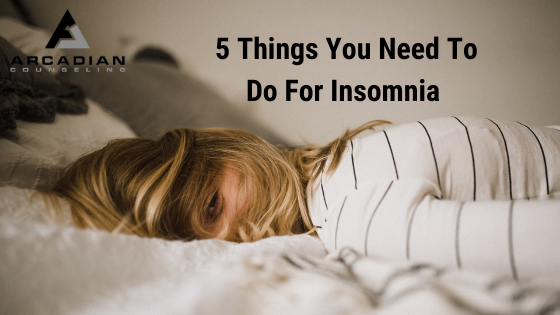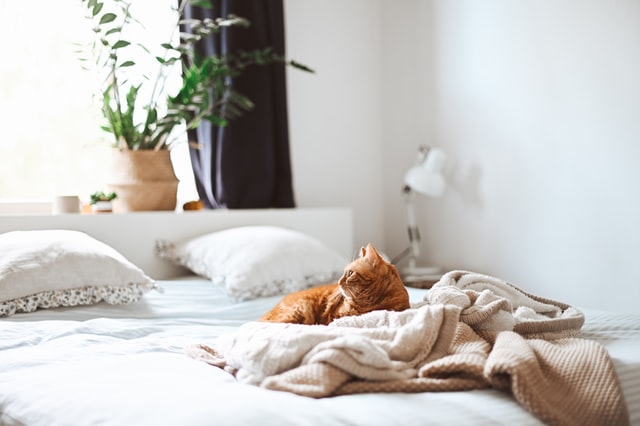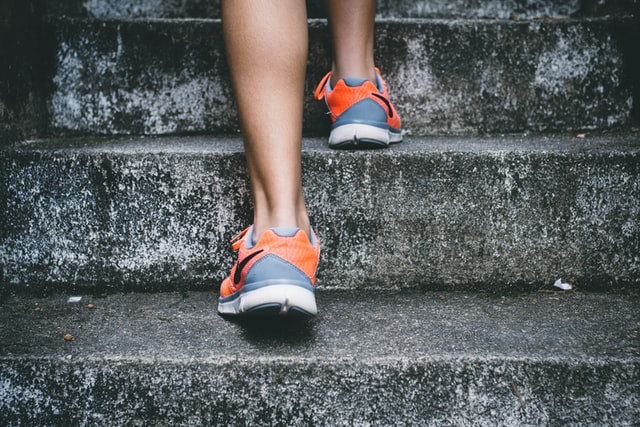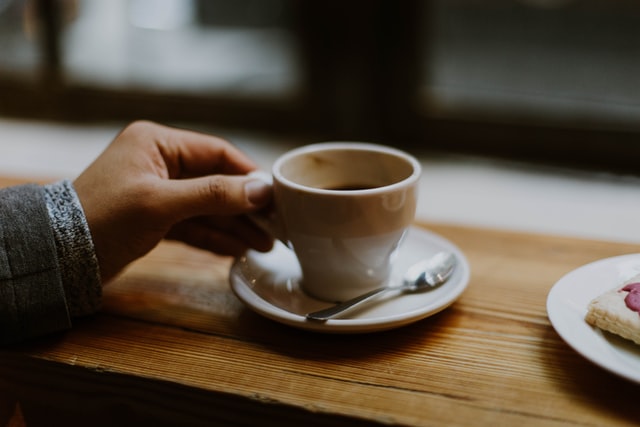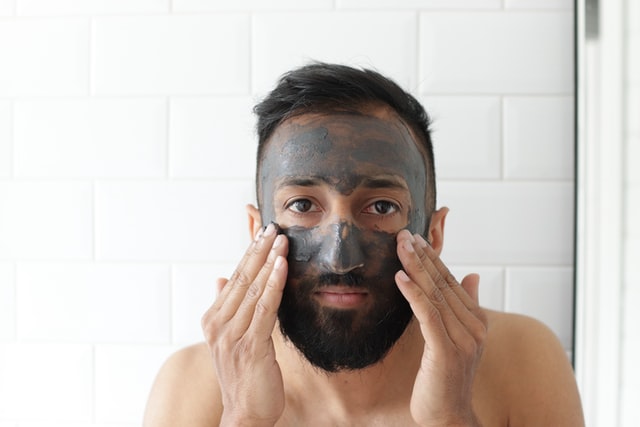If you’re struggling to fall or stay asleep, you’re not alone. Insomnia, the chronic inability to get sufficient sleep, affects millions of Americans every night. According to the Centers For Disease Control & Prevention’s 2014 study, more than a third of Americans aren’t getting enough sleep on a daily basis. I’m sure if they did that study in 2020, it would be much higher!
With a lack of sleep at the root of serious medical conditions like obesity, high blood pressure and heart disease, getting the right amount (and quality) of sleep on a regular basis is crucial to a long and healthy life.
5 Ways To Sleep Better With Insomnia
1. Just Two Things In Bed
Make sure that your bed is used only for two things: sleep and sex. Not scrolling through your phone or staring at a TV hanging across the room. By using your bed almost exclusively for sleep, your body will associate your bed with rest and relaxation, making it easier to fall asleep.
Love reading a book before bed? Snuggle up on the couch or find a comfortable reading chair in another room. When you find yourself getting tired, simply go into bed turn off the lights and lay down.
One of the biggest mistakes people make is having a TV in their room and “using” it to help them fall asleep. If you have a TV in your room and you fall asleep quickly, sleep soundly through the night and wake up feeling refreshed, then keep at it! But if you’re struggling to fall asleep, stay asleep, or wake up before your alarm clock on the regular – lose the TV.
2. Exercise Regularly
Getting regular exercise – 30-minutes a day, five days a week to be precise, will help promote healthy sleep habits. Time and time again when clients come in with sleep challenges and we add exercise into their daily routine, almost always their sleep is improved. Just because you may not be overweight, does not mean you’re immune to needing exercise.
Your post exercise temperature may promote falling asleep, and exercise in general will help eliminate insomnia by decreasing arousal and anxiety. But be sure avoid strenuous exercise 1 to 2 hours before going to bed as this could be counterproductive.
3. Naps, Caffeine, & Alcohol
Short naps are helpful for some, but for others it impacts their ability to fall asleep at night. If you’re struggling with insomnia, avoid naps during the day. Caffeine may keep you up longer than you’re aware. You may need to avoid caffeine entirely if it prevents you from falling asleep. Finally, while alcohol is a sedative, it can wreak havoc on your sleep patterns. So if you have trouble staying asleep, avoid alcohol.
4. No Screens Before Bedtime
Screen time, such as computers, smart phones and television, prevent you from falling asleep due to cognitive stimulation. Too much light at bedtime affects your melatonin production, giving your body the impression that it’s staying awake, not ready for sleep.
If you’re already struggling with insomnia, especially primary insomnia (difficulty falling asleep) staring at screens for hours before bed is one of the worst things you can do.
Help your body get ready for sleep by eliminating screen time at least two hours before bed. Additionally, at sunset, keep the lights in the house low. The objective is to create an environment the triggers the brain to “get ready for sleep.”
5. Create a Nighttime Routine
Creating a regular night time routine an hour or two before bed will help your brain get into the habit of winding down and preparing for sleep mode. Have a cup of tea, brush your teeth, take a warm bath, and read something inspiring or relaxing every night before bed. Take a moment to take stock of went well that day and what you are grateful for.
Make sure you go to bed around the same time every night too, even weekends.
Additionally, one of the most important factors in maintaining a healthy sleep pattern is waking up at the same time every day. This keeps your circadian rhythm in check and will make a huge difference in your sleep habits.
Changing old habits and establishing a routine is never easy. Try changing one habit at a time and once you feel you have it under control, move onto the next habit. As you make changes and sustain these new practices, it will get easier and before long you’ll have a new set of healthy habits, and you can finally settle in for a good night’s sleep.
Life is too short to feel tired all the time. If you feel like stress, anxiety or depression are contributing to your insomnia, find and awesome therapist you like and trust to help you decrease stress, increase fulfillment and get some sleep!
James Killian, LPC is the Principal Therapist & Owner of Arcadian Counseling in New Haven, CT where they specialize in helping over-thinkers, high achievers, and perfectionists reduce stress, increase fulfillment and enhance performance so they can move From Surviving To Thriving.

